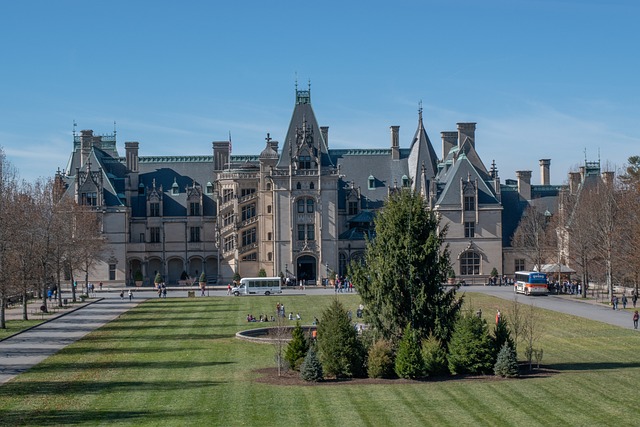In North Carolina, the rising tide of spam calls has become a significant issue, disrupting daily life and raising privacy concerns. These automated or call center-originated calls are often fraudulent, prompting residents to seek legal assistance from specialized spam call lawyers and attorneys. The state's stringent laws, like the North Carolina Telemarketing Act and TCPA, empower citizens to take action against spammers. Both local businesses and residents face risks, including identity theft and financial losses. A multi-pronged approach involving community engagement, legal guidance from experts, and stricter regulations is needed to mitigate these growing concerns and create a safer environment for North Carolinians.
In today’s digital era, spam calls have become a persistent and pervasive issue in North Carolina, impacting local trust and safety. This article delves into the prevalence and patterns of these unwanted communications, exploring their legal frameworks and existing regulations. We analyze the significant effects on local businesses and residents’ well-being, offering practical strategies to combat spam calls and restore community confidence. For those seeking redress, connecting with a reputable spam call lawyer North Carolina or spam call attorney North Carolina can provide guidance and protection against these invasive practices.
The Prevalence and Patterns of Spam Calls in North Carolina
In North Carolina, as across the nation, spam calls have become a ubiquitous and increasingly frustrating phenomenon. These unsolicited telephone marketing calls, often originating from automated systems or call centers, not only disrupt individuals’ daily lives but also raise significant concerns about privacy and safety. With a growing number of citizens seeking legal recourse against these persistent intruders, there is a rising demand for specialized legal assistance. A spam call lawyer North Carolina, spam call attorney North Carolina, or reputable spam call law firms North Carolina can offer crucial guidance and representation to those affected.
The patterns of spam calls in the state reveal striking trends. Callers often target residents with pre-recorded messages promoting various products, services, or even fraudulent schemes. These calls are not only intrusive but also pose risks, as many targets have reported receiving spam calls that resemble phishing attempts or even threats. The sheer volume of such calls has led many North Carolina residents to question the effectiveness and ethics of these marketing strategies, prompting a need for stricter regulations and legal action against relentless spammers.
Legal Frameworks and Existing Spam Call Laws in NC
North Carolina, like many states, has established legal frameworks to combat the issue of spam calls and protect its residents from unsolicited telephone marketing. The state’s laws aim to safeguard consumers’ privacy and peace of mind by limiting the volume and types of telemarketing calls they receive. One key piece of legislation is the North Carolina Telemarketing Act, which prohibits certain practices deemed intrusive or deceptive. This includes calling individuals on their personal phones at unusual hours, making prerecorded automated calls, and misrepresenting or omitting information about the caller or the purpose of the call.
In addition to state laws, federal regulations also come into play, such as the Telephone Consumer Protection Act (TCPA). These legal frameworks empower residents of North Carolina to take action against persistent spam callers by filing complaints with relevant authorities and seeking legal recourse through a spam call lawyer in North Carolina or a reputable spam call law firm. Individuals who have been affected can consult spam call attorneys in NC to understand their rights and explore options for holding perpetrators accountable.
Impact on Local Businesses and Residents' Safety
Spam calls have become a pervasive issue in North Carolina, significantly impacting both local businesses and residents’ safety. For small businesses, these unwanted calls can be particularly detrimental, disrupting daily operations and potentially leading to financial losses. Many companies, especially those in retail or customer service, rely on phone communication as their primary point of contact with clients. Regular spam calls not only reduce the quality of service but also expose sensitive business information to malicious actors who may use social engineering tactics over the phone.
Additionally, spam calls pose a direct threat to residents’ safety. Scammers often use deceptive practices to trick individuals into providing personal and financial details, making them vulnerable to identity theft and fraud. In some cases, these calls can be linked to more sinister activities, such as phishing schemes or even threats of physical harm. A spam call lawyer North Carolina or an attorney specializing in spam calls can help victims navigate legal options, while a reputable spam call law firm North Carolina can advocate for stricter regulations to mitigate these growing concerns.
Strategies to Combat Spam Calls and Restore Trust in the Community
To combat the growing issue of spam calls and restore trust within the community in North Carolina, several strategic approaches can be implemented. One effective method is for residents to educate themselves about the latest anti-spam call laws and regulations. A spam call lawyer or attorney in North Carolina can play a crucial role in this by providing legal guidance and assistance. These professionals can help individuals understand their rights and offer advice on how to deal with unwanted calls.
Additionally, community engagement is vital. Encouraging residents to report spam calls to relevant authorities and participating in local awareness campaigns can significantly deter spammers. Local law firms specializing in spam call cases can collaborate with community leaders and organizations to develop robust strategies that protect citizens’ privacy and peace of mind. By combining legal expertise with community involvement, North Carolina can create a safer and more trustworthy environment for its residents.






